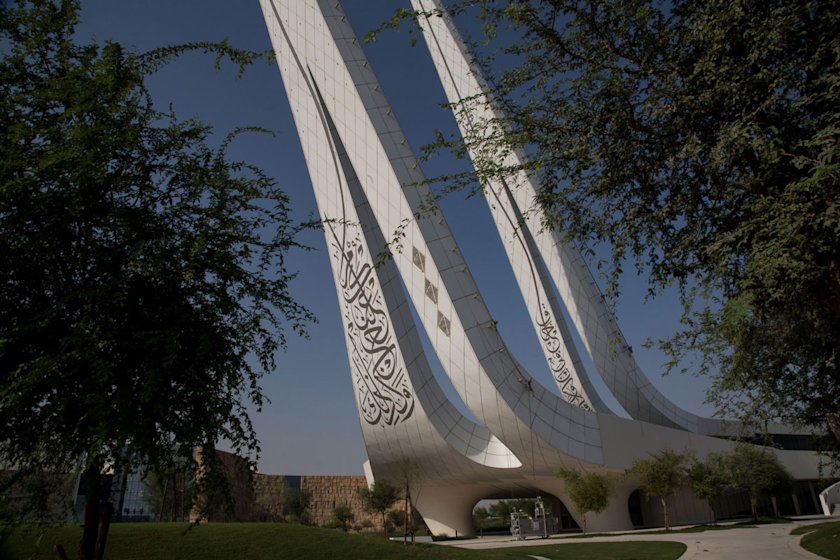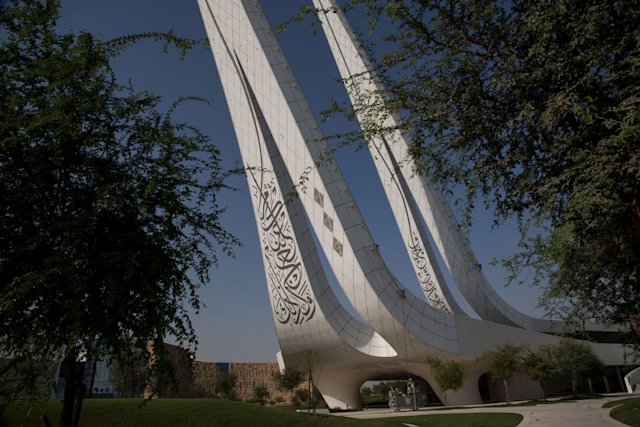A Step Into the Future
When graduating students from every one of the universities at Education City gather for Qatar Foundation’s (QF) annual Convocation ceremony, it is about more than a celebrating an academic achievement.
Convocation marks the point at which they step from one phase of their life’s journey into the next, knowing that, because of their time at QF, they are as equipped to lead, create, innovate, influence, and make change happen as any group of young people in the world.
The ceremony also reflects the interwoven, multicultural, and diverse educational ecosystem of QF, as graduates from different universities, who have taken different majors and have different dreams, share a moment that reflects how each of them has been, and always will be, part of QF’s story.
And following its COVID-enforced postponement in 2020, this year Convocation was back – in virtual form to adhere to public health guidelines, and celebrating the Classes of 2020 and 2021 from QF’s Hamad Bin Khalifa University (HBKU) and partner universities, whose members demonstrated their resilience as well as their talent by graduating amid the disruption and uncertainty of a pandemic.
When graduating students from every one of the universities at Education City gather for Qatar Foundation’s (QF) annual Convocation ceremony, it is about more than a celebrating an academic achievement.
Convocation marks the point at which they step from one phase of their life’s journey into the next, knowing that, because of their time at QF, they are as equipped to lead, create, innovate, influence, and make change happen as any group of young people in the world.
The ceremony also reflects the interwoven, multicultural, and diverse educational ecosystem of QF, as graduates from different universities, who have taken different majors and have different dreams, share a moment that reflects how each of them has been, and always will be, part of QF’s story.
And following its COVID-enforced postponement in 2020, this year Convocation was back – in virtual form to adhere to public health guidelines, and celebrating the Classes of 2020 and 2021 from QF’s Hamad Bin Khalifa University (HBKU) and partner universities, whose members demonstrated their resilience as well as their talent by graduating amid the disruption and uncertainty of a pandemic.
Against the backdrop of a global pandemic, young change-makers from across QF’s ecosystem of education demonstrated their resilience – and emerged stronger for the experience. In May, they were celebrated.
- 774 graduates formed QF’s Class of 2021
- QF now has 7,116 alumni
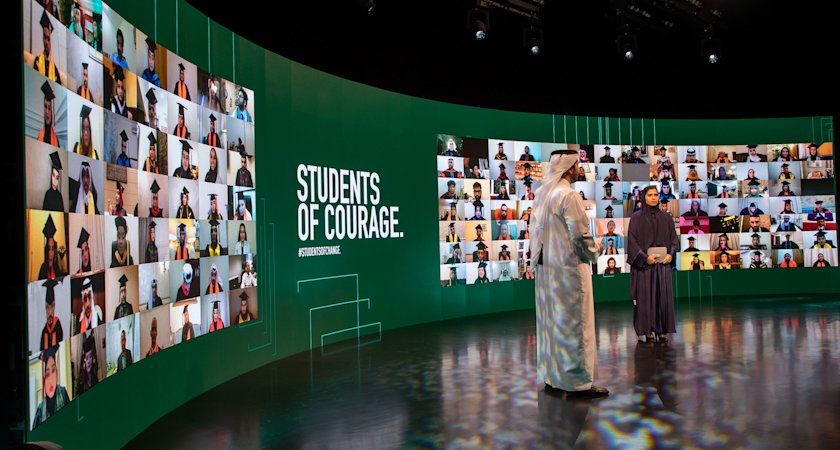
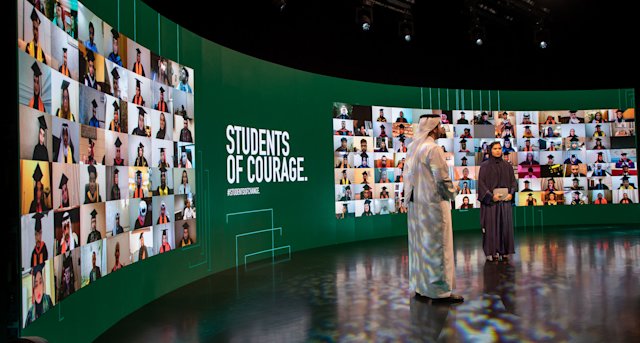
Inspired by Challenges
Speaking at Convocation, Her Highness Sheikha Moza bint Nasser, Chairperson of Qatar Foundation, told over 1,600 graduates from the two classes: “It is through you that we can sustain the prosperity of the present and strengthen our future.
“Every challenge we face teaches us new lessons, and inspires new values that enable us, together, to form new perspectives about the reality of the world as it changes.”
The ceremony saw graduates share their experiences and goals for the future, with parents also joining in their joy. Northwestern University in Qatar graduate Danna Mohamad Takriti said: “My ultimate hope, especially as a Palestinian, is to tell human-centered stories on wide-ranging platforms to amplify the voices of the oppressed through storytelling.”
Texas A&M University at Qatar (TAMUQ) Class of 2021 graduate Majed Al Saad told his fellow graduates: “You’re all my role models”. And Moza Al Muhannadi, who graduated from Weill Cornell Medicine-Qatar (WCM-Q), sent a message to her fellow new doctors: “I’m so very proud of you.
“You graduated to the truest test of all doctors – a global pandemic – and I’m so inspired by your courage.”
Speaking at Convocation, Her Highness Sheikha Moza bint Nasser, Chairperson of Qatar Foundation, told over 1,600 graduates from the two classes: “It is through you that we can sustain the prosperity of the present and strengthen our future.
“Every challenge we face teaches us new lessons, and inspires new values that enable us, together, to form new perspectives about the reality of the world as it changes.”
The ceremony saw graduates share their experiences and goals for the future, with parents also joining in their joy. Northwestern University in Qatar graduate Danna Mohamad Takriti said: “My ultimate hope, especially as a Palestinian, is to tell human-centered stories on wide-ranging platforms to amplify the voices of the oppressed through storytelling.”
Texas A&M University at Qatar (TAMUQ) Class of 2021 graduate Majed Al Saad told his fellow graduates: “You’re all my role models”. And Moza Al Muhannadi, who graduated from Weill Cornell Medicine-Qatar (WCM-Q), sent a message to her fellow new doctors: “I’m so very proud of you.
“You graduated to the truest test of all doctors – a global pandemic – and I’m so inspired by your courage.”
- Northwestern University in Qatar’s Class of 2021 comprised 83 graduates
- Texas A&M University at Qatar’s Class of 2021 comprised 107 graduates
- Weill Cornell Medicine-Qatar’s Class of 2021 comprised 41 graduates
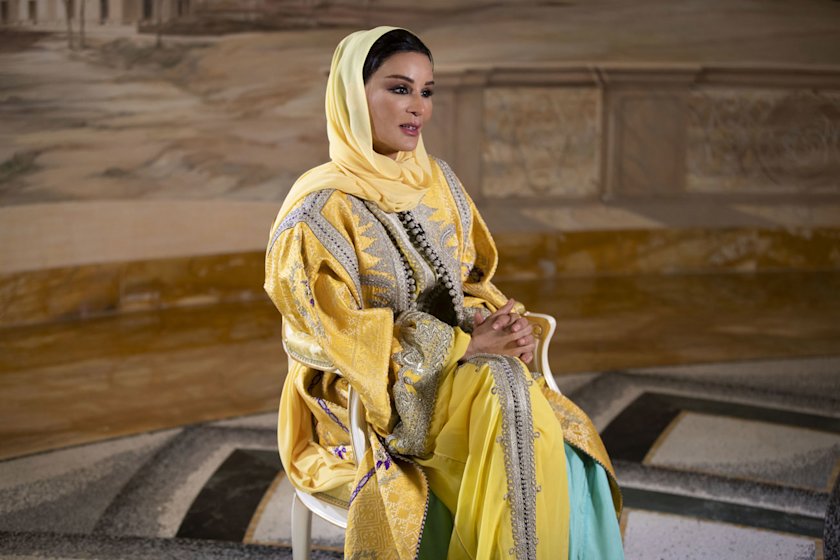
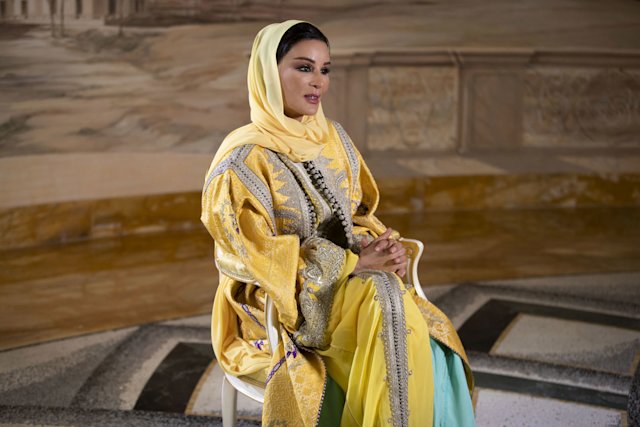
Milestones and Motivation
As HBKU celebrated its Classes of 2020 and 2021 at a virtual ceremony in May, QF’s homegrown university also marked milestones – passing the 1,000-graduate mark, and seeing the first students graduate from 11 of its programs.
“Every graduate at this amazing ceremony has a personal story, motivation, and vision for a better future, each one in the area they have chosen and excelled in,” said student speaker Ghoroor Abdulwaheed, a Master of Arts graduate in Women, Society and Development from HBKU’s College of Health and Social Sciences.
“Our insistence on drawing the features of a brilliant future for our local communities and the entire world is a common aspect.”
And Dina Abdelazeem, student speaker for the Class of 2021 at QF partner university Carnegie Mellon University in Qatar – almost half of whom were Qataris – told a virtual event to celebrate its Class of 2021: “Even though COVID-19 did have an influence on our journey, always remember that it did not define it.
“All of our accomplishments started with the decision to try.”
As HBKU celebrated its Classes of 2020 and 2021 at a virtual ceremony in May, QF’s homegrown university also marked milestones – passing the 1,000-graduate mark, and seeing the first students graduate from 11 of its programs.
“Every graduate at this amazing ceremony has a personal story, motivation, and vision for a better future, each one in the area they have chosen and excelled in,” said student speaker Ghoroor Abdulwaheed, a Master of Arts graduate in Women, Society and Development from HBKU’s College of Health and Social Sciences.
“Our insistence on drawing the features of a brilliant future for our local communities and the entire world is a common aspect.”
And Dina Abdelazeem, student speaker for the Class of 2021 at QF partner university Carnegie Mellon University in Qatar – almost half of whom were Qataris – told a virtual event to celebrate its Class of 2021: “Even though COVID-19 did have an influence on our journey, always remember that it did not define it.
“All of our accomplishments started with the decision to try.”
Our insistence on drawing the features of a brilliant future for our local communities and the entire world is a common aspect
- Hamad Bin Khalifa University’s Class of 2021 comprised 229 graduates
- Carnegie Mellon University in Qatar’s Class of 2021 comprised 95 graduates
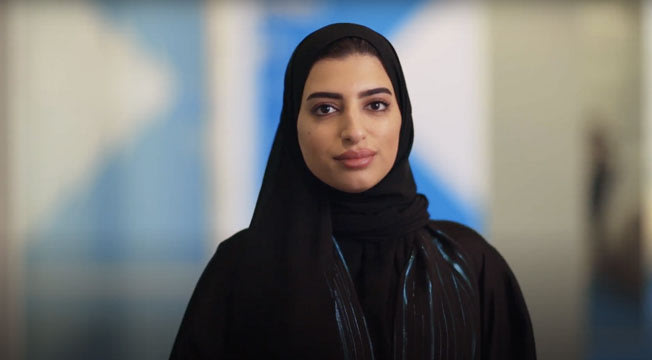
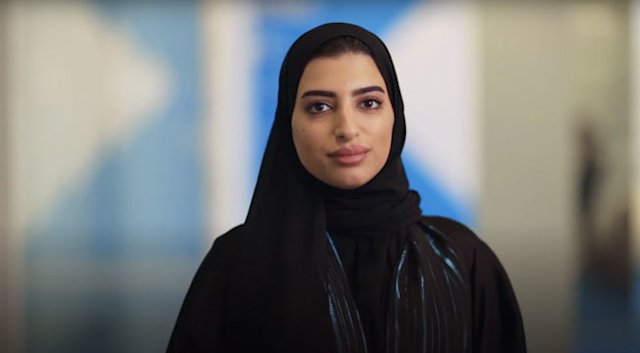
Stronger Through Adversity
QF partner university Georgetown University in Qatar’s Class of 2021 were praised for leaving “a lasting legacy” on its community by Her Excellency Lolwah Rashid Al-Khater, Assistant Foreign Minister and Spokesperson for the Ministry of Foreign Affairs, at their virtual commencement ceremony.
“As ambitious, global citizens with a commitment to scholarship and service, you represent the best of Qatar’s investment in its human capital, helping to drive Qatar toward its future,” she said.
The emotions of QF partner university Virginia Commonwealth University School of the Arts in Qatar’s Class of 2021 were encapsulated by Salutatorian and Interior Design graduate Aia Zaina, who told the university’s virtual commencement ceremony, said: “This university welcomed me with open arms and priceless knowledge.
“Graduating in such challenging times hasn’t taken away from the experience. On the contrary, it made our relationships, opportunities, and mutual support stronger.”
And while COVID-19 prevented physical graduation events, TAMUQ Dean César Octavio Malavé took a four-day journey around Qatar to personally present each of the university’s 107 Class of 2021 graduates with their engineering degrees.
QF partner university Georgetown University in Qatar’s Class of 2021 were praised for leaving “a lasting legacy” on its community by Her Excellency Lolwah Rashid Al-Khater, Assistant Foreign Minister and Spokesperson for the Ministry of Foreign Affairs, at their virtual commencement ceremony.
“As ambitious, global citizens with a commitment to scholarship and service, you represent the best of Qatar’s investment in its human capital, helping to drive Qatar toward its future,” she said.
The emotions of QF partner university Virginia Commonwealth University School of the Arts in Qatar’s Class of 2021 were encapsulated by Salutatorian and Interior Design graduate Aia Zaina, who told the university’s virtual commencement ceremony, said: “This university welcomed me with open arms and priceless knowledge.
“Graduating in such challenging times hasn’t taken away from the experience. On the contrary, it made our relationships, opportunities, and mutual support stronger.”
And while COVID-19 prevented physical graduation events, TAMUQ Dean César Octavio Malavé took a four-day journey around Qatar to personally present each of the university’s 107 Class of 2021 graduates with their engineering degrees.
Graduating in such challenging times hasn’t taken away from the experience. On the contrary, it made our relationships, opportunities, and mutual support stronger
- Virginia Commonwealth University School of the Arts in Qatar’s Class of 2021 comprised 94 graduates
- Georgetown University in Qatar’s Class of 2021 comprised 71 graduates
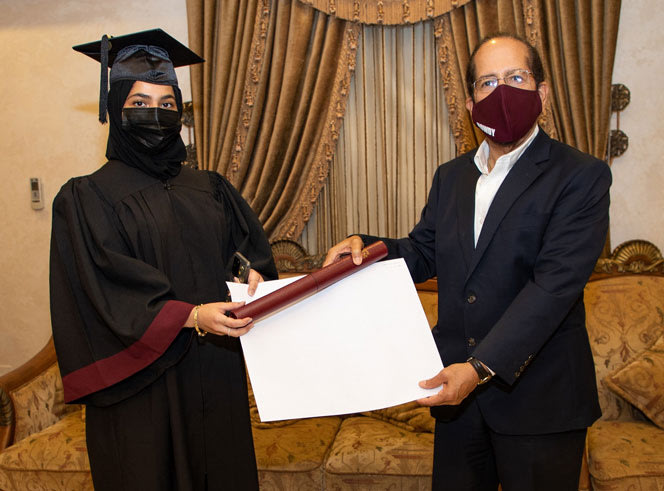
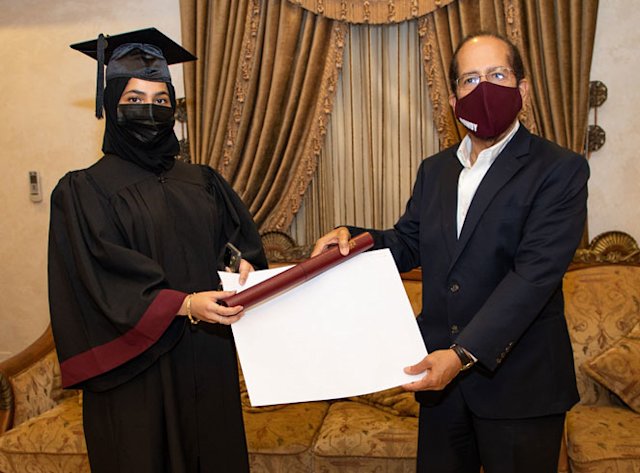
The Path to Precision Health
A joint research project conducted by experts across QF led to the publication of a unique study that highlighted the need for population-based studies if precision cancer treatments are to be developed.
Led by the Translational Cancer and Immunity Center at HBKU’s Qatar Biomedical Research Institute (QBRI), and with researchers from Qatar Computing Research Institute, QF’s Sidra Medicine, and WCM-Q also participating alongside Hamad Medical Corporation and the University of California, the study demonstrated that the ancestry and ethnic background of patients must be considered on the path to making personalized treatments for cancer a reality.
“Our research findings support the presence of an additional level of complexity introduced by ancestry-associated traits, and highlight the pressing need to account for ancestry-specific molecular features in precision cancer medicine,” said QBRI scientist Dr. Julie Decock.
“We therefore advocate for more large-scale studies on under-represented populations, such as patients of Arab and African descent.”
A joint research project conducted by experts across QF led to the publication of a unique study that highlighted the need for population-based studies if precision cancer treatments are to be developed.
Led by the Translational Cancer and Immunity Center at HBKU’s Qatar Biomedical Research Institute (QBRI), and with researchers from Qatar Computing Research Institute, QF’s Sidra Medicine, and WCM-Q also participating alongside Hamad Medical Corporation and the University of California, the study demonstrated that the ancestry and ethnic background of patients must be considered on the path to making personalized treatments for cancer a reality.
“Our research findings support the presence of an additional level of complexity introduced by ancestry-associated traits, and highlight the pressing need to account for ancestry-specific molecular features in precision cancer medicine,” said QBRI scientist Dr. Julie Decock.
“We therefore advocate for more large-scale studies on under-represented populations, such as patients of Arab and African descent.”
QBRI houses three centers of research excellence
- Cancer Research Center
- Diabetes Research Center
- Neurological Disorders Research Center
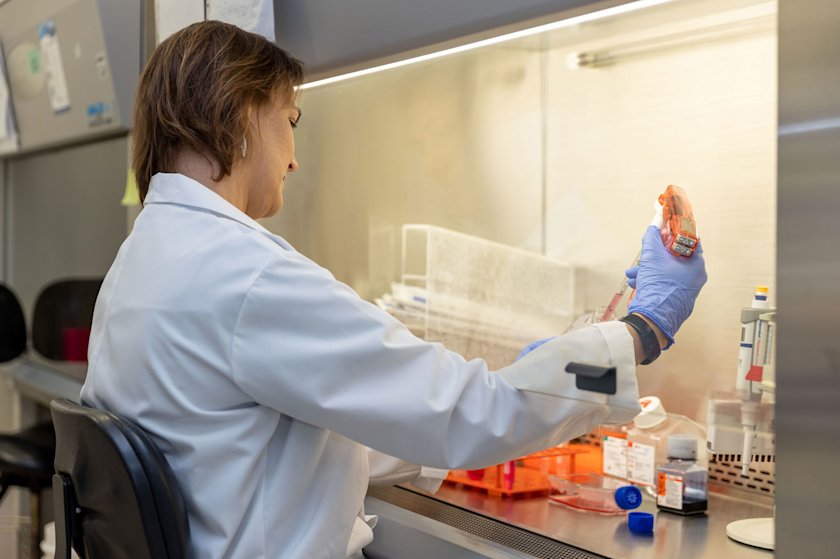
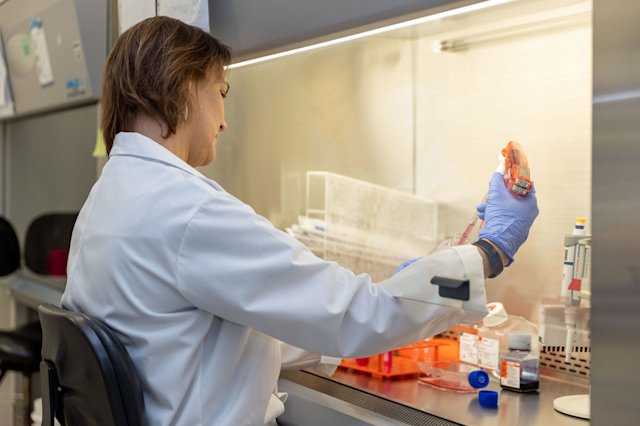
Collaborating for Care
Sidra Medicine’s work in the field of women’s and children’s mental health – from cutting-edge research and healthcare to advocacy – was recognized at a global level in May, paving the way for it to elevate its efforts in this field both within and beyond Qatar.
The QF member became the world’s first Collaborating Center of the World Psychiatric Association (WPA) designated specifically for women and children, which will see it partner with the association in areas such as policymaking. These centers have national, regional, and international status as leaders in clinical care, research, and teaching.
“It is my hope that the expertise from Sidra Medicine’s Department of Psychiatry will complement the WPA agenda of improving global mental health,” said WPA President Professor Afzal Javed.
Sidra is one of only eight WPA Collaborating Centers in the world, and Professor Muhammad Waqar Azeem, Inaugural Chair of its Department of Psychiatry, said: “The collaboration with WPA will help improve the psychiatric care of children, adolescents and women in Qatar, as well as at a regional level.”
Sidra Medicine’s work in the field of women’s and children’s mental health – from cutting-edge research and healthcare to advocacy – was recognized at a global level in May, paving the way for it to elevate its efforts in this field both within and beyond Qatar.
The QF member became the world’s first Collaborating Center of the World Psychiatric Association (WPA) designated specifically for women and children, which will see it partner with the association in areas such as policymaking. These centers have national, regional, and international status as leaders in clinical care, research, and teaching.
“It is my hope that the expertise from Sidra Medicine’s Department of Psychiatry will complement the WPA agenda of improving global mental health,” said WPA President Professor Afzal Javed.
Sidra is one of only eight WPA Collaborating Centers in the world, and Professor Muhammad Waqar Azeem, Inaugural Chair of its Department of Psychiatry, said: “The collaboration with WPA will help improve the psychiatric care of children, adolescents and women in Qatar, as well as at a regional level.”
It is my hope that the expertise from Sidra Medicine’s Department of Psychiatry will complement the WPA agenda of improving global mental health
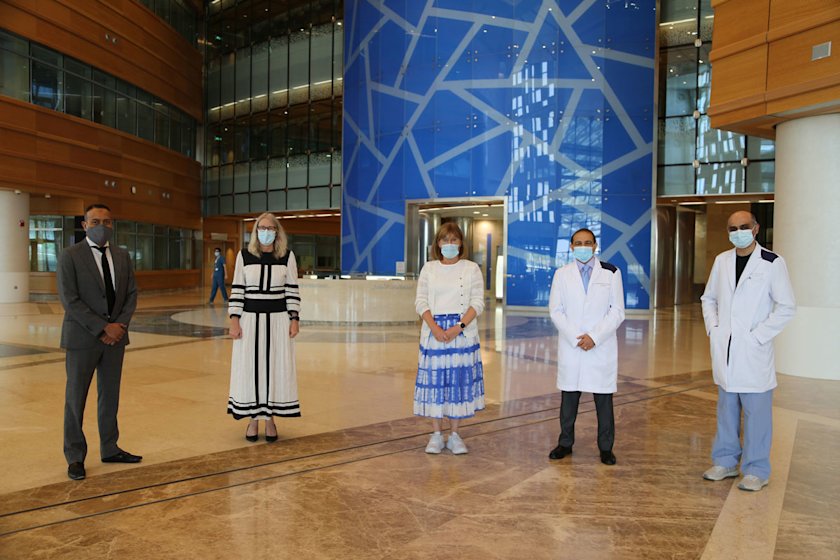
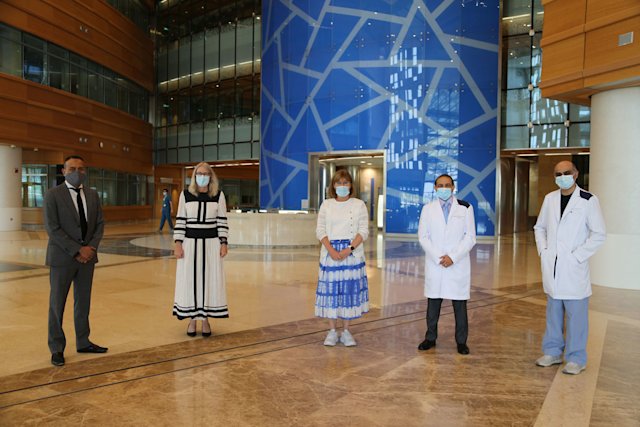
A Focus on the Family
QF’s capacity to lead international dialogue-driven exploration of key social issues was illustrated in May as its Doha International Family Institute (DIFI) brought the problems that declining fertility rates pose for countries around the world to the United Nations table.
Catalyzed by DIFI’s research on Social Aspects of Fertility in Qatar, the event on the sidelines of the 54th session of the UN’s Commission on Population and Development looked into the global drivers of low fertility, with the aim of identifying policies and practices that can address the trend.
Declining fertility rates decrease overall populations while also increasing their age and diminishing their workforce levels, meaning they impact on economic growth and national development. DIFI Executive Director Dr. Sharifa Noaman Al Emadi told the session: “Factors impacting low fertility are diverse, fueled by structural factors such as increased divorce rates, postponement of marriage, decreasing marriage rates, and couples’ preference to have fewer children.
“Other aspects are related to education, the labor market, and work-family balance priorities, and economic burdens in terms of housing and the cost of parenting are also influential factors.”
QF’s capacity to lead international dialogue-driven exploration of key social issues was illustrated in May as its Doha International Family Institute (DIFI) brought the problems that declining fertility rates pose for countries around the world to the United Nations table.
Catalyzed by DIFI’s research on Social Aspects of Fertility in Qatar, the event on the sidelines of the 54th session of the UN’s Commission on Population and Development looked into the global drivers of low fertility, with the aim of identifying policies and practices that can address the trend.
Declining fertility rates decrease overall populations while also increasing their age and diminishing their workforce levels, meaning they impact on economic growth and national development. DIFI Executive Director Dr. Sharifa Noaman Al Emadi told the session: “Factors impacting low fertility are diverse, fueled by structural factors such as increased divorce rates, postponement of marriage, decreasing marriage rates, and couples’ preference to have fewer children.
“Other aspects are related to education, the labor market, and work-family balance priorities, and economic burdens in terms of housing and the cost of parenting are also influential factors.”
DIFI’s focus on the Arab family is built around:
- Advocacy
- Research
- Policy
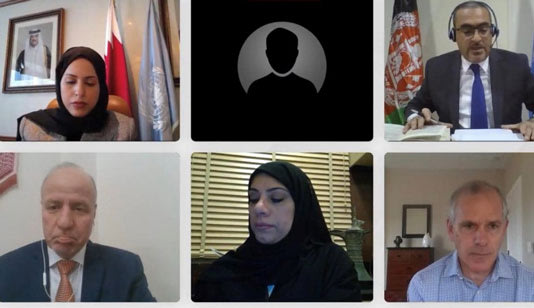

Opening Up An Experience
Backed by QF and its dedication to supporting the Arab world’s aspiring innovators, a new online venture allowing visitors to the FIFA World Cup Qatar 2022 to personalize their travel itineraries was unveiled – promising to give users a true cultural experience by connecting them with the nation’s people.
Jordan-based ViaVii is a platform for people to explore and book travel experiences - including cooking traditional Qatari food, exploring Qatar’s arts scene, learning about the country’s cultural heritage, and spending nights in the desert – while incorporating the Arabic language and allowing Qatari hosts to add experiences and communicate with travelers.
ViaVii received seed investment from the Tech Venture Fund run by Qatar Science & Technology Park (QSTP), part of Qatar Foundation Research, Development and Innovation, which supports local tech startups and aims to attract international startups to the region.
“During our journey, we always sought partners, not a cheque,” said ViaVii founder and CEO Rola Fayyad. “In my years of fundraising, QSTP was the only investor out of several that focused on the team rather than just a product, which is the reason startups succeed – the team behind them.”
Backed by QF and its dedication to supporting the Arab world’s aspiring innovators, a new online venture allowing visitors to the FIFA World Cup Qatar 2022 to personalize their travel itineraries was unveiled – promising to give users a true cultural experience by connecting them with the nation’s people.
Jordan-based ViaVii is a platform for people to explore and book travel experiences - including cooking traditional Qatari food, exploring Qatar’s arts scene, learning about the country’s cultural heritage, and spending nights in the desert – while incorporating the Arabic language and allowing Qatari hosts to add experiences and communicate with travelers.
ViaVii received seed investment from the Tech Venture Fund run by Qatar Science & Technology Park (QSTP), part of Qatar Foundation Research, Development and Innovation, which supports local tech startups and aims to attract international startups to the region.
“During our journey, we always sought partners, not a cheque,” said ViaVii founder and CEO Rola Fayyad. “In my years of fundraising, QSTP was the only investor out of several that focused on the team rather than just a product, which is the reason startups succeed – the team behind them.”
QSTP was the only investor out of several that focused on the team rather than just a product, which is the reason startups succeed
Here's to new beginnings! ❤️
— ViaVii (@ViaViiTravel) July 4, 2021
Proud to announce the opening of ViaVii's new office #QSTP in Qatar! 🇶🇦😍@QSTP @QF @SCCorporate @roadto2022news @HAlThawadi
وتستمر مسيرة نجاحنا! ❤️
يسعدنا الإعلان عن افتتاح مكتب فيافي الجديد
في واحة قطر للعلوم والتكنولوجيا! 🇶🇦 😍#Qatar #Viavii pic.twitter.com/rdBHGqLUnf
Beyond the Classroom
Throughout the COVID-19 pandemic, adjusting to online learning has been a challenge for children – and their parents.
That’s why a QF school made it a priority to get parents fully involved in the virtual learning process for their children. At Tariq Bin Ziad School, part of QF’s Pre-University Education, interactive videos were produced that enable students to e-learn with their parents at home, any time.
The school also offered parents workshops on using online education platforms, held weekly meetings with them to explain blended education, and encouraged them to send pictures and videos of their children learning at home so teachers can see how they listen, think, and communicate while working.
“E-learning is no longer a surprise, but a reality for which we have prepared,” said Hamda Al-Subaey, a teacher at Tariq Bin Ziad School. “We have adapted to it, and developed creative educational plans that suit both students and parents.
“E-learning has not prevented us from preserving the interaction element that is essential in education. Rather, many educational and entertainment methods have been developed to attract and influence students.”
Throughout the COVID-19 pandemic, adjusting to online learning has been a challenge for children – and their parents.
That’s why a QF school made it a priority to get parents fully involved in the virtual learning process for their children. At Tariq Bin Ziad School, part of QF’s Pre-University Education, interactive videos were produced that enable students to e-learn with their parents at home, any time.
The school also offered parents workshops on using online education platforms, held weekly meetings with them to explain blended education, and encouraged them to send pictures and videos of their children learning at home so teachers can see how they listen, think, and communicate while working.
“E-learning is no longer a surprise, but a reality for which we have prepared,” said Hamda Al-Subaey, a teacher at Tariq Bin Ziad School. “We have adapted to it, and developed creative educational plans that suit both students and parents.
“E-learning has not prevented us from preserving the interaction element that is essential in education. Rather, many educational and entertainment methods have been developed to attract and influence students.”
E-learning is no longer a surprise, but a reality for which we have prepared
448 students are enrolled at Tariq Bin Ziad School in the 2021-22 academic year
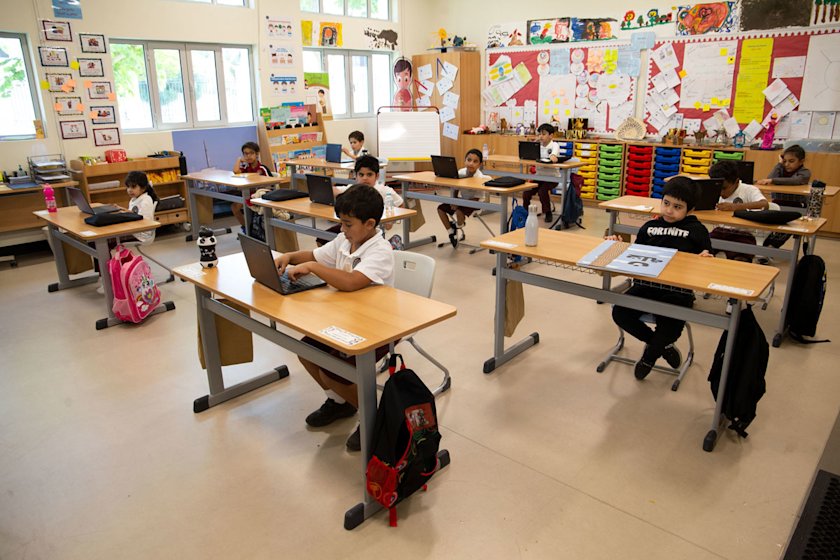
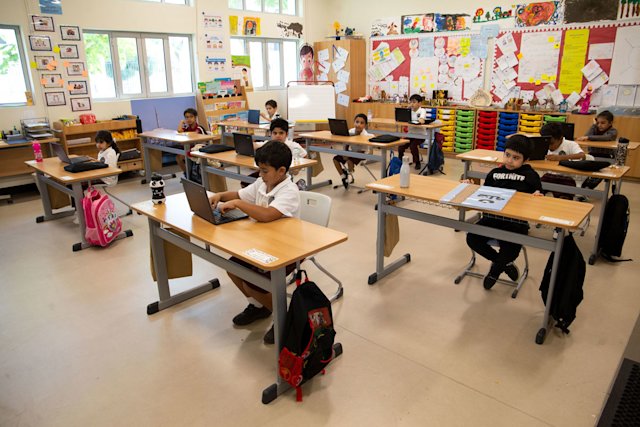
A Legacy Lives On
Preserving the ancient and beautiful art of Arabic calligraphy represents a key element of QF’s role as a custodian of the Arabic language, culture, and heritage – a role that was in even greater focus this year with Doha being chosen as Capital of Culture in the Islamic World 2021.
Workshops on Arabic calligraphy are taught at Minaretein (Education City Mosque). And, in May, those behind this opportunity for people from all cultures and backgrounds – whether they speak Arabic or not - to learn the art and the life skills it teaches explained its enduring value.
“We believe that Arabic calligraphy represents an important aspect of our intellectual and art history,” said Hamad Al Naemi, Events Planning Coordinator at Minaretein, “as it embodies the visual identity of the Arabic language, which reflects our culture, identity, and heritage.
“With new generations drifting away from this art form, we thought it was crucial to find solutions that guarantee the preservation of our cultural legacy.”
Preserving the ancient and beautiful art of Arabic calligraphy represents a key element of QF’s role as a custodian of the Arabic language, culture, and heritage – a role that was in even greater focus this year with Doha being chosen as Capital of Culture in the Islamic World 2021.
Workshops on Arabic calligraphy are taught at Minaretein (Education City Mosque). And, in May, those behind this opportunity for people from all cultures and backgrounds – whether they speak Arabic or not - to learn the art and the life skills it teaches explained its enduring value.
“We believe that Arabic calligraphy represents an important aspect of our intellectual and art history,” said Hamad Al Naemi, Events Planning Coordinator at Minaretein, “as it embodies the visual identity of the Arabic language, which reflects our culture, identity, and heritage.
“With new generations drifting away from this art form, we thought it was crucial to find solutions that guarantee the preservation of our cultural legacy.”
We believe that Arabic calligraphy represents an important aspect of our intellectual and art history
The Education City Mosque can host 2,800 worshippers
